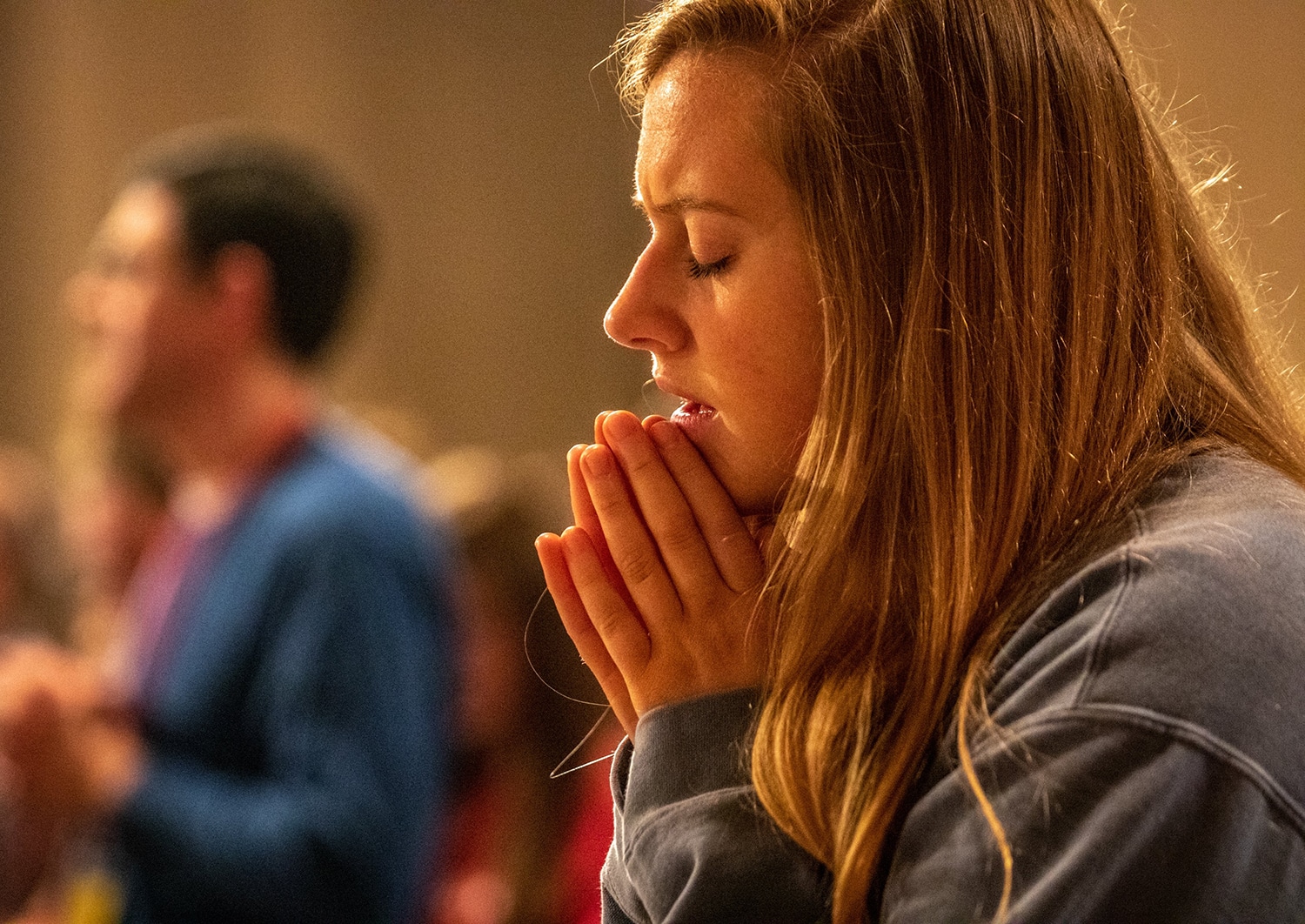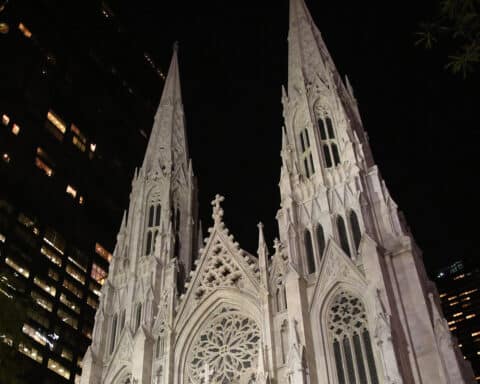Recently I shared on social media that for Lent, and for the “Year of Prayer,” I was committing to memory a version of the Breastplate of St. Patrick. It is a powerful confession of belief that includes a rather comprehensive request for supernatural protections. It also beautifully seeks out the permeating presence of Jesus Christ. Memorization has been slow, but I now take enormous sustenance in reciting the prayer’s opening lines each morning:
“I arise today
Through a mighty strength, the invocation of the Trinity,
Through belief in the Threeness,
Through confession of the Oneness
of the Creator of creation …”
In response to my post, someone asked where she could learn more about the proclaimed “Year of Prayer,” and I found an article linking to the Vatican’s online resource, called “Teach us to Pray.” Sharing it, I added, “you can try this, but really the best way to learn about prayer is to practice prayer in all of its modalities — scriptural, contemplative, liturgical, devotional, even rote-memorized prayer. Prayer teaches itself, if you let it.”
Prayer comes first from God
Practicing prayer as a Benedictine Oblate (I started as a bumbler and am still very much a beginner), I know this simple idea to be quite true. For many, prayer seems a tremendous mystery, and in some ways it is, of course. But prayer is also merely dialogue whose simplicity can resemble all the manner of conversations we have throughout our days, large and small, pleasant or sarcastic or even heated.
The thing to understand about prayer is that it always originates from God. Those little nudges to turn Godward that we feel throughout the day — to make a plea, or cast one’s thanks, or just to bask for a moment in stillness and “know” that God is God — are actually God reaching out, because he loves us and misses us and actually does want our engagement.
| Vatican website prepares us for Jubilee 2025 |
|---|
|
The Vatican has unveiled its Jubilee 2025 website — iubilaeum2025.va. There is also an app available for pilgrims. The website offers information about Jubilee 2025: the bull of announcement, the jubilee prayer, the hymn, a letter from Pope Francis, an explanation of what a jubilee is, the historical background of jubilees, and is available in nine languages. For those wishing to participate in the jubilee, the site contains a calendar of events and provides pilgrimage options, including one within Rome. Pilgrims can also sign up for a participation card and for lodging. Events are already posted on the calendar. Pope Francis will open the Holy Door of St. Peter’s Basilica on Dec. 24, 2024. Jan. 24 marks the Jubilee of the World of Communication, and Feb. 8 is the Jubilee of the Armed Forces, Police and Security. The website also highlights preparations across the globe for Jubilee 2025. On Jan. 21 of this year, Pope Francis launched the Year of Prayer in preparation for the jubilee and called on Catholics “to pray more fervently to prepare ourselves to live properly this grace-filled event and to experience the power of hope in God.” The Year of Prayer, the pope said, is dedicated “to rediscovering the great value and absolute need for prayer, prayer in personal life, in the life of the Church, prayer in the world.” Archbishop Rino Fisichella, pro-prefect of the Dicastery for Evangelization, and who is in charge of coordinating the Year of Prayer, said, “It’s a privileged time in which to rediscover the value of prayer and the need for daily prayer in our Christian life.” He added that the Year of Prayer offers “a time to discover how to pray and, above all, how to educate the people of today in prayer, in this age of digital culture, so that prayer can be effective and fruitful.” |
As the Catechism of the Catholic Church puts it: “In prayer, the faithful God’s initiative of love always comes first; our own first step is always a response. As God gradually reveals himself and reveals us to ourselves, prayer becomes a reciprocal call, a covenant drama” (No. 2567).
But how to respond when the urge to pray comes and we understand that we’re being invited into that mystery?
Where to start?
Well, while it is very true that our prayers needn’t be formed by words at all because the Holy Spirit “intercedes with inexpressible groanings,” (Rom 8:26), here we discover the value of the often-denigrated Catholic practice of memorized prayers. When we have no idea where to begin, Jesus himself has given us the perfect entry into dialogue with the “Our Father.” When we want to offer praise beyond “thank you, God” (which is enough, really), we have the doxology we call the “Glory Be.” When we need to recall our roots, or want a mother’s consolation, the “Hail Mary,” the “Memorare” or the Angelus always serve.
Litanies and the psalms are also excellent entries into prayer that can go surprisingly deep. Litanies, with their repetitions of praise or supplication, being a pulse to our prayer, one that becomes meditative as it draws us more deeply into the encounter.
The psalms, which are perfect expressions of the human condition, give us words we sometimes think we ought not say, thus permitting us to bring all of ourselves — including our darkest instincts which, though we hide them from ourselves, are never hidden from God — are such excellent prayers that Jesus himself prayed them.
Begin with silence
So, to learn prayer, it is good to simply begin. The key to prayer making a true difference in one’s life (or in one’s day, one’s hour or a fraught minute) is the listening.
“Listen” is the very first word of the Rule of St. Benedict; for me, it has come to encompass the totality of Benedictine spirituality — the routine of ora et labora (prayer and work), the willingness to give hospitality, the conversio (conversion of manners) that slowly and permanently shapes how we become present to others in myriad ways, including in silence.
“Listen carefully, my child, to the master’s instructions and attend to them with the ear of your heart,” begins the Rule.
As St. Benedict himself — or anyone who practices the work of prayer, in which we are always beginners — will tell you, everything flows from there.





